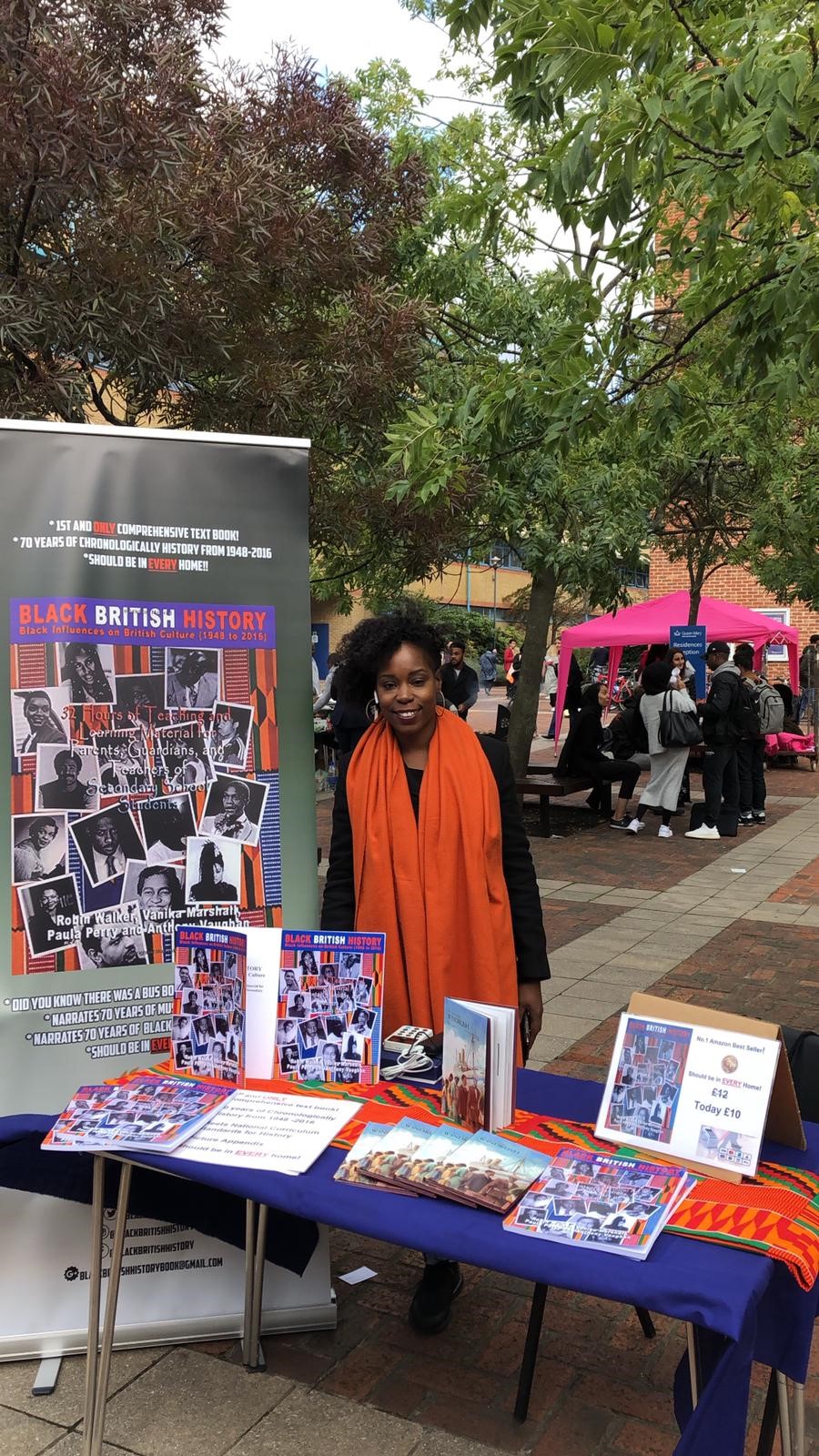Student profile: Giulia Olayemi
Giulia is a second-year medical student, President of the Barts and The London African & Caribbean Society (BL-ACS) and the organiser of the Queen Mary Black-Owned Business Fair. Today, she speaks with us about the importance of Black History Month and where she draws her inspiration from.

One of 50 exhibitors at this year's Black-Owned Business Fair
Tell us a little about yourself?
I’m currently a second-year medical student, after graduating from Queen Mary with a degree in biochemistry in July 2017. It’s been great to experience student life at two Queen Mary campuses and to draw comparisons between the two; Mile End is fantastic as it’s so large and diverse and I love how everything you see at Barts is organised by students. As well as being President of BL-ACS, I was a BME representative last academic year and a member of the Student Council as a first-year rep. Outside uni, I tutor children at different levels, from primary school to A level; one of my students has learning difficulties and was recently nominated for a prize at school – I was so proud! I also won the Miss Ebony Ambassador UK pageant in June – as part of that, I’ll be going to Nigeria for the first time next year.
Tell us a little about Black History Month and its importance
Black History Month is an opportunity for people who identify as Black to showcase their cultures and celebrate a rich history. For those who want to know more about Black history, it’s a great opportunity to learn more and try something new. BHM also brings to the forefront all of the amazing achievements of Black people across different fields.
Tell us about growing up as a Black person in the UK
I believe that in Western society, there are a lot of labels. As someone who is half Italian and half Nigerian, I feel like I questioned exactly which label I came under whilst growing up, especially in secondary school, where I was one of very few Black people. As I’ve got older, I’ve become increasingly more comfortable with proudly identifying as both Italian and Nigerian. I’ve realised that I don’t need to be defined by a label.
What does being a Black woman mean to you?
I am honoured to be a Black woman. My ancestors and the people before were so strong-minded and able to overcome any obstacle. This has empowered me and filled me with confidence; I also love my melanin and natural protection from the sun!
Is there a specific Black woman/man from history/today who inspires you?
It’s great to see women of colour do well. Taraji P. Henson is someone who I see as such an inspiration. She entered the film industry quite late with barely any money, and against the odds she made it by being focused and driven. I see her as a living legend and my mentality is to emulate her in real life so whatever I set my mind to, I can achieve.
Who would your dream BHM dinner party guests be?
Obviously, Taraji P. Henson! I’d also invite Idris Elba, Queen Latifah and Missy Elliott. Denzel Washington is another person who would be there, because I love how he’s helped other Black talent achieve great things. I think it’s amazing that he paid for Chadwick Boseman to take part in a theatre programme at Oxford and now he’s landed leading roles in films like Black Panther! I’d also like to invite Jo-Wilfried Tsonga; I love tennis and I was once a ball girl at the Queen’s Tennis Club.
How do you think Black culture has shaped popular culture within the UK (music, TV, books, films)?
In every single aspect. You look at music and artists like Stormzy who has brought in a new era of grime and shaped a way of thinking, then there are genres like Afrobeats that have come into the mainstream. Millions of people attend Notting Hill Carnival and in doing so, listen to dancehall and soca. Then you can see how directors like Jordan Peele have released films like Get Out and Us and countless authors who have written fantastic books. It’s also refreshing to see Black people credited with their contributions to society through films such as Hidden Figures.
What were your aims for this year’s Black-Owned Business Fair?
I wanted to create a platform to allow Black entrepreneurs to shine and showcase their talents, increasing their visibility. It’s difficult for business owners to have these spaces as they often have to pay. This was free for them and I think it’s a great celebration of BHM. Last year, there were 12 businesses and we grew that to 50 this year – the volume and range of different businesses is something that I’m so proud of! We also had alumni exhibiting this year as well as students from other universities. We are the only UK university to run an event of this nature and I think that’s a fantastic achievement.
How well do you think Queen Mary does in staying in touch with African and Caribbean students? Do you think this has changed during your time here?
It’s changed quite a lot over the years that I’ve been here. For example, BHM hasn’t always been a university-wide campaign and I’ve seen Queen Mary shift to this over the years, which has been a big step in the right direction. This has been achieved through higher levels of engagement with students, especially by the Students’ Union. I am also looking to make BHM protected so that the University continues to recognise and celebrate it each year in the future.